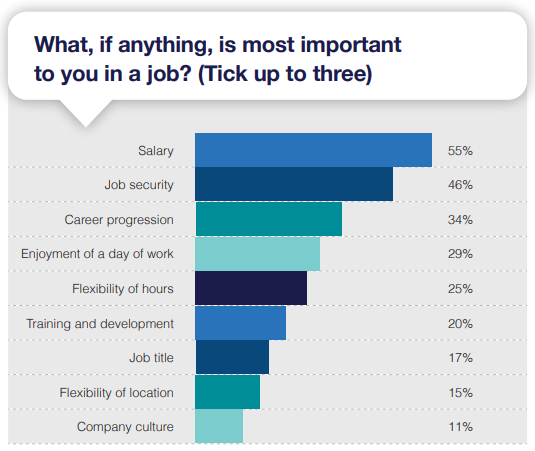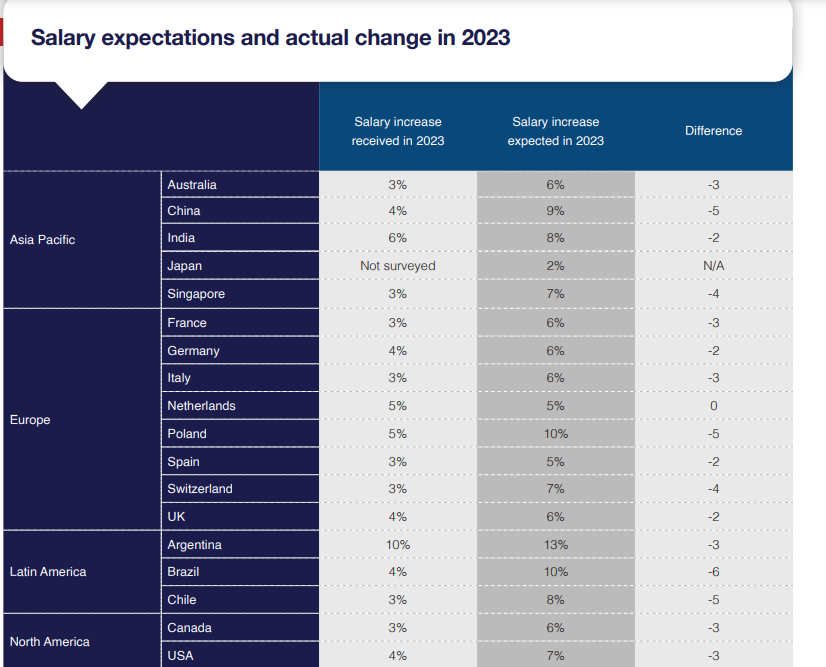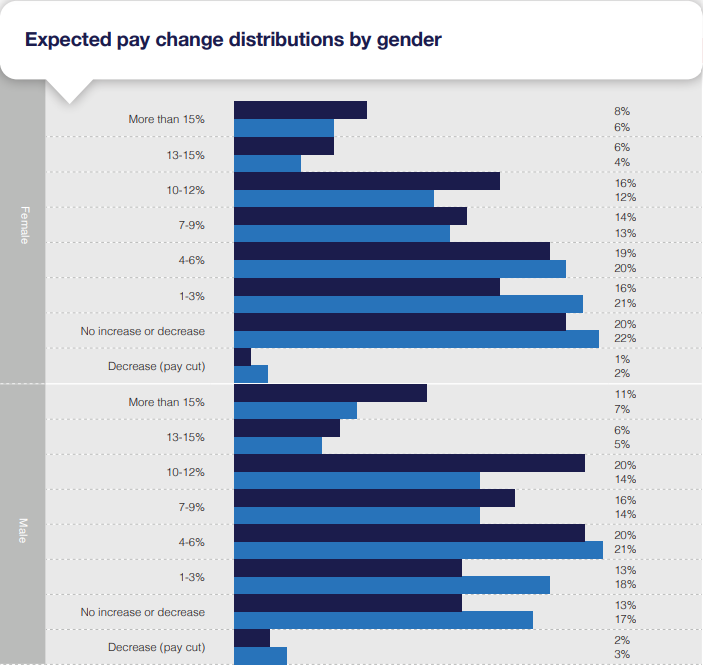'Pay gains for nonmanagerial workers are heavily skewed toward lower cost-of-living increases, but cluster at higher levels for upper managers'

Pay is still among workers’ top priorities in 2024, according to a report from ADP.
Pay (55 per cent) outdid job security (46 per cent) and career progression (34 per cent) when it came to the list of the things that are most important to workers worldwide, according to the report.
Despite the importance workers put on pay, 40 per cent of workers who place importance on salary were dissatisfied with what their employer pays them.
“Salary fares worse than every other priority when it comes to how well employers deliver,” said ADP in the report.

Source: ADP
Pay increases
More than three in four workers received a pay increase during the previous 12 months, with the average raise coming in at four per cent. Wage expectations for the current year are higher, averaging more than five per cent.
But even pay increases are falling short of workers’ expectations.
In Canada, workers received a three per cent salary increase, half of the six per cent that workers expected. This is the case among all but one of the countries included in the ADP study.
The Netherlands provided a pay increase of five per cent in 2023, exactly what workers in the country were expecting.

Source: ADP
Despite this, pay stagnation eased in 2023. Last year, 26 per cent of workers reported no change in their wages, down from 32 per cent the prior year.
However, while wage stagnation has declined, 20 per cent of workers globally still expect their pay to remain unchanged in 2024, up from 15 per cent a year ago, according to the ADP report.
Pay stagnation has eased more for women than men. The share of women who say they saw no change in pay decreased to 29 per cent in 2023 from 38 per cent the prior year. For men, the share fell from 28 per cent to 24 pe cent.

Source: ADP
However, while pay has increased for many workers, those in different management levels are far more likely than those in the lower ranks to have received pay increases in 2023.
Nearly half (47 per cent) of intern or temporary workers and 38 per cent of individual contributors did not get a pay increase or decrease in 2023.
The numbers are far lower for those in upper management (15 per cent), middle management (22 per cent) and frontline management (28 per cent).
“The higher a person ranks in management, the more likely they are to anticipate — and receive — higher wages. Whereas pay gains for nonmanagerial workers are heavily skewed toward lower cost-of-living increases, they tend to cluster at higher levels for upper managers,” said ADP.




